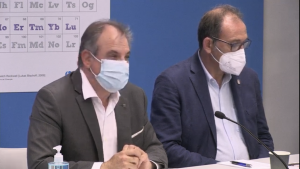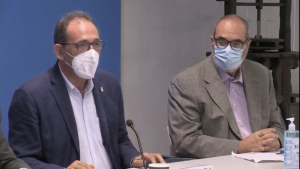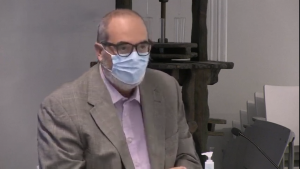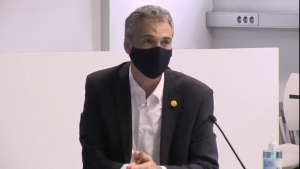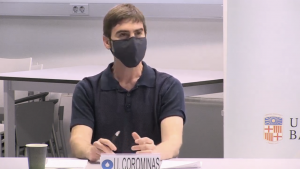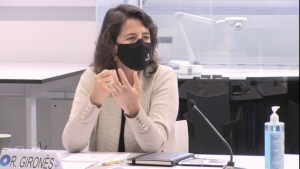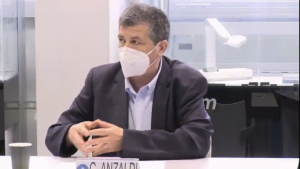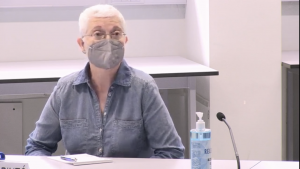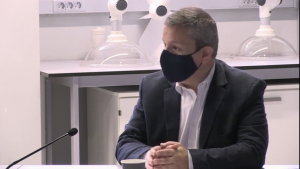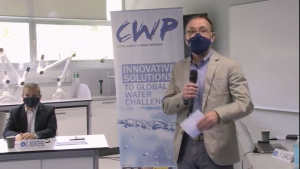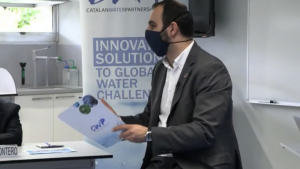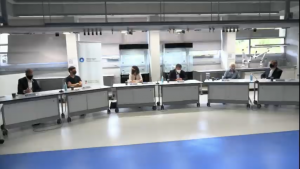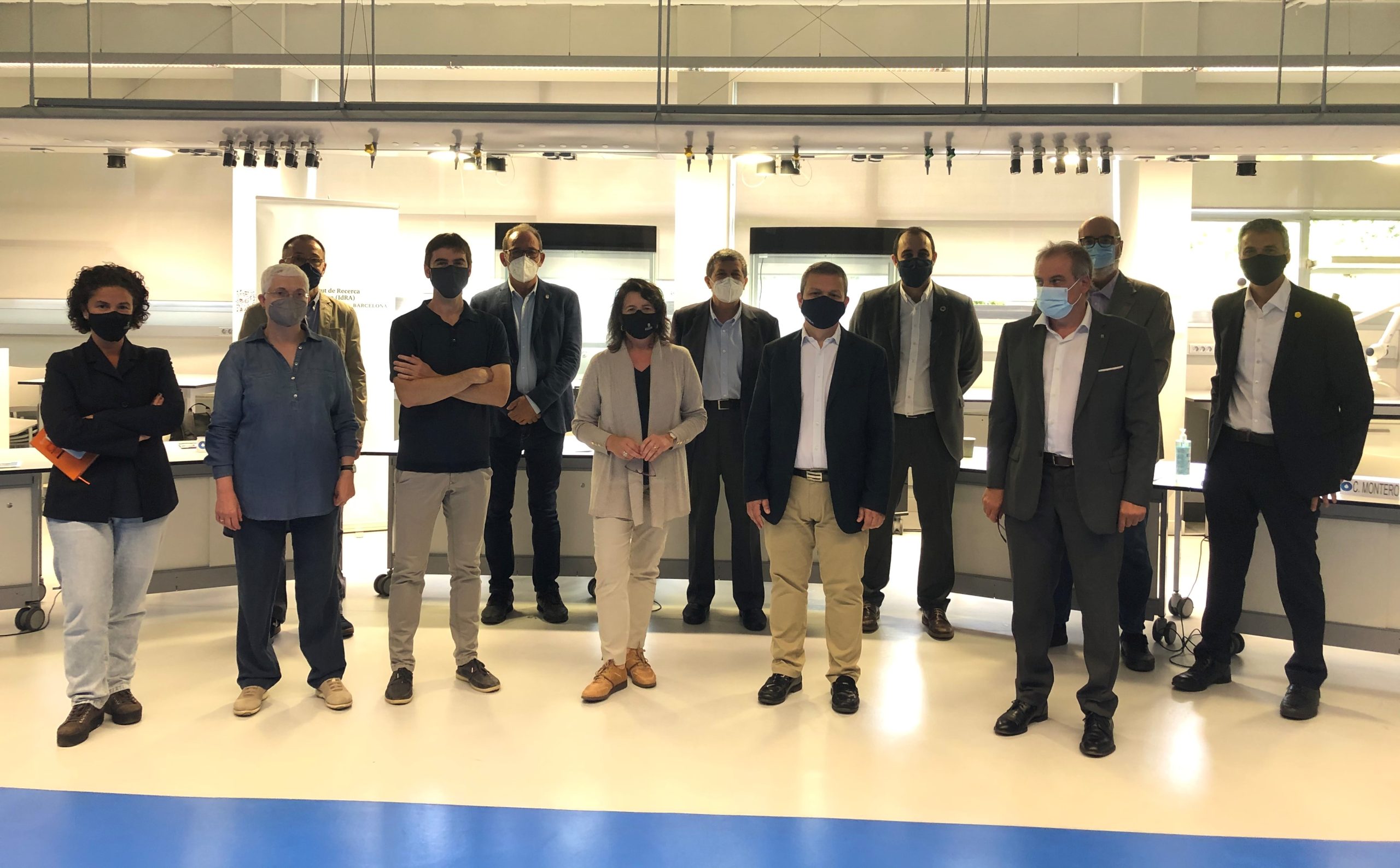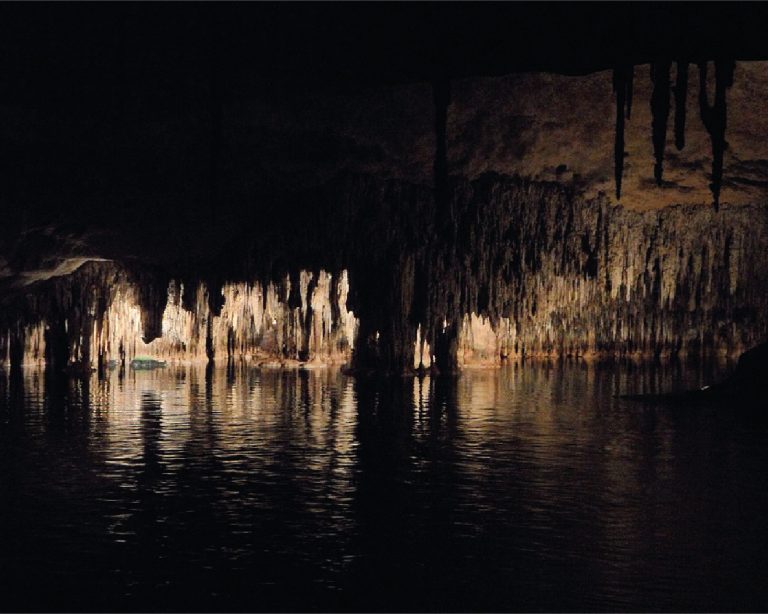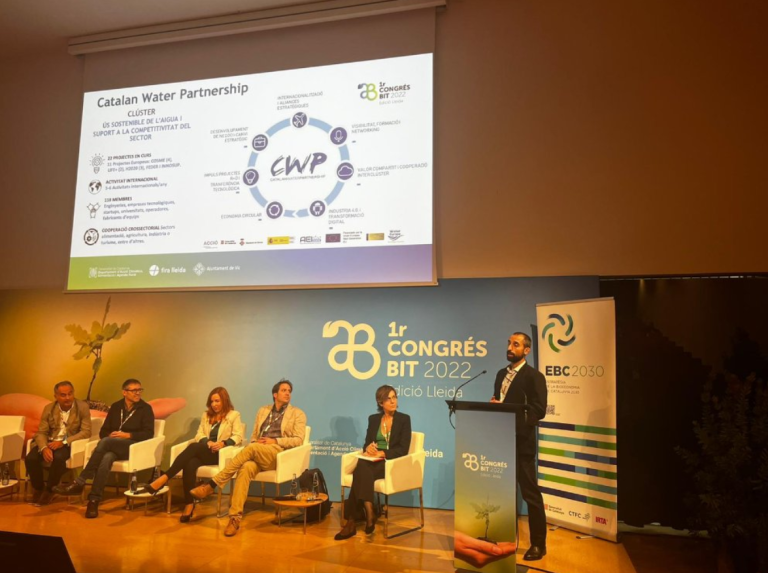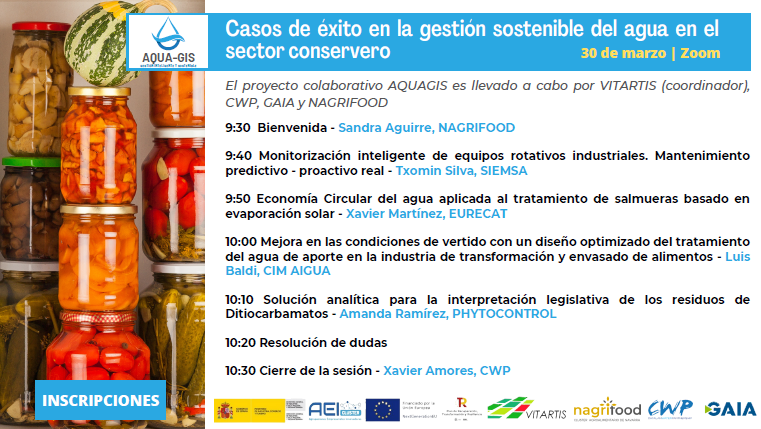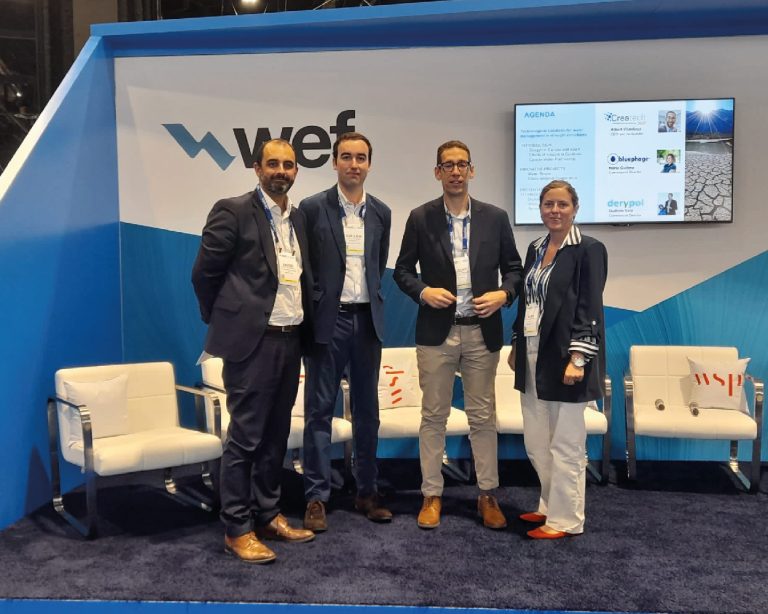CURRENT AND FUTURE PERSPECTIVES ON R+D RELATED TO THE IDENTIFICATION OF SARS-COV2 IN WASTE WATER
On 2 June, the IDRA (Water Research Institute) of the University of Barcelona (UB) together with the Catalan Water Partnership (CWP) organised a debate on Current and future perspectives in R&D related to the identification of SARS-COV2 in wastewater. The event was attended by experts from the main research actors in Catalonia in the framework of the SARS-COV2 detection project in wastewater.
The event began with a welcoming speech by Lluís Ridao, director of the Catalan Water Agency (ACA), who highlighted Catalonia’s commitment to research and the added value it brings to the water cycle by promoting projects with the country’s leading research centres that are international benchmarks, such as ICRA and IdRA. It should be noted that Catalonia has been a pioneer in the deployment of the Covid19 monitoring network in wastewater, both in terms of installations and coordination with the health authorities and advice from specialised research centres. Dr. Jordi García Fernández, Vice-Rector of Research at the University of Barcelona (UB), emphasised how the importance of science in all areas has been proven and how the UB is a reference in research in this field. Jordi Cros, president of the CWP, went on to highlight the importance of the cluster in adapting activities to the SARSCOV-2 situation and highlighted the webinar on wastewater organised in April 2020 on the same subject a few days after the start of the pandemic and how the cluster has promoted cooperation between different actors in projects, the case of the SARSCOV-2 follow-up is a very good example of the participation of administrations, researchers and companies.
The participants in the debate were Marc Moliner, Head of the Department of Strategy and Regulation – Sanitation Area of the Catalan Water Agency (ACA), Lluís Corominas, Scientific Researcher in the Technology and Assessment Area of the Catalan Institute for Water Research (ICRA), Gabriel Anzaldi, Director of Scientific and Technological Development at Eurecat, Rosina Gironès, Dean of the Faculty of Biology at the University of Barcelona (UB), Rosa Maria Pintó, Director of Scientific and Technological Development at Eurecat, Rosina Gironès, Dean of the Faculty of Biology at the University of Barcelona (UB), and Rosa Maria Pintó, Director of Scientific and Technological Development at Eurecat, Director of Scientific and Technological Development at Eurecat, Rosina Gironès, Dean of the Faculty of Biology at the University of Barcelona (UB), Rosa Maria Pintó, coordinator of the research group on enteric viruses at the University of Barcelona (UB) and Carlos Montero, technical director of Cetaqua. The debate was moderated by Xavier Amores, director of CWP. In the initial part of the debate, the importance of cooperation between different actors from different disciplines of knowledge was highlighted, as some of the research centres and researchers have been working in this field for years, how the ACA supported an innovative but high-impact project, and how the data was shared with citizens through an operation that made it possible to move from sample collection to a citizen consultation tool in a very short time. With regard to the future, the role of this experience in the identification of variants, the potential as an early warning system for future viruses or even the multidisciplinary nature that it can contribute to new fields of research was explained. All the participants repeated the idea that this monitoring should be continued continuously over the next few years.
The closing speech was given by Dr. José Francisco García, Director of the Institute for Water Research (IdRA), who thanked all the speakers and institutions that participated in the event and highlighted the transversality of the research areas in which IdRA works.
With the support of:

